YSU Board of Trustees Summary, Sept. 1 and 2, 2021
Approval of a new associate’s degree in Nursing, endorsement of the Academic Program Enhancement and Effectiveness Initiative, discussion of future plans for Kilcawley Center and the announcement of the completion of the “We See Tomorrow” fundraising campaign - $126,187,126. Those were among the actions and reports as the YSU Board of Trustees met Wednesday and Thursday, Sept. 1 and 2, on campus. For the full resolutions, and other background materials, visit the Board of Trustees website. Here’s a summary:
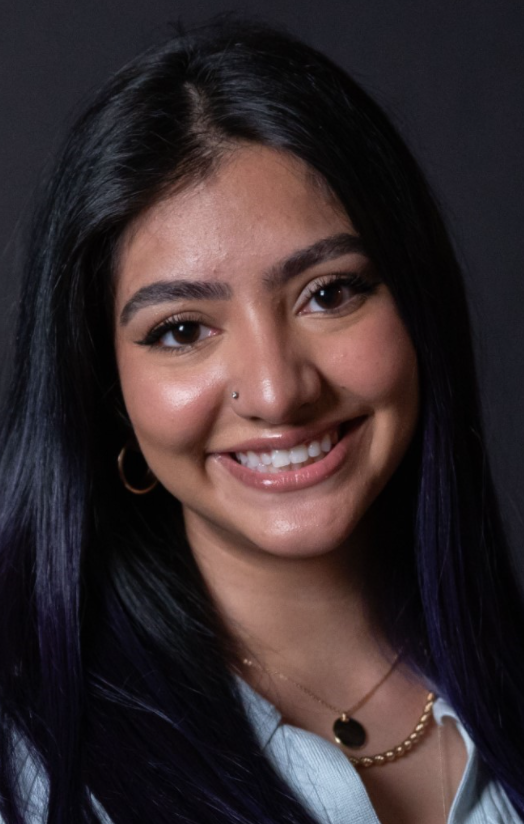
Oath of Office
Board Secretary Molly Seals administered the Oath of Office to Elsa Khan, appointed by Gov. Mike DeWine to a two-year term on the board as a student trustee.
President’s Report
President Jim Tressel said it is good to see campus alive with the start of the Fall Semester. He noted that the university has continued to work hard and make progress even in the midst of the COVID-19 pandemic - faculty have continued to do research, publish and grow in providing quality instruction; university staff has continued to excel in serving the university; administrative leadership has also continued to work hard and accomplish much. The president noted how the university’s efforts to expand and improve online course offerings have significantly helped enrollment. He also mentioned successful initiatives in curriculum efficiency, student success programs, first year experience, orientation, workforce development, IT, diversity/equity/inclusion, Human Resources, registrar, financial aid and student experience, among others. With students “back at full speed,” Tressel also reported on Student Government’s plans to lead the charge in getting more students vaccinated for COVID-19. He also said that the administration is working to develop a campus infrastructure to safely track campus vaccine rates should a vaccine mandate be instituted. “A lot of people working together; a lot of effort,” he said. “Job one is to take care of one another.”
Presentations
Faculty
Wendy Case, lecturer of Violin in the Dana School of Music, reported on a $10,000 grant received from the National String Project Consortium to implement a program to provide training to young violin-, cello- and bass-players in the Youngstown City Schools. The project, set to start in Fall 2022, will utilize Dana students to provide free and reduced cost private lessons to students starting in grades 4 and 5, Case said. The grant includes continued funding for six years.
Students
Rachel Hritz, a Studio Art major, reported on the recently-completed mural projects on Andrews Avenue and in Deibel Park on campus. These projects bring energy and excitement to the areas at which they are located and create a sense of community, pride and collaboration. Also being considered are further enhancements to the mural areas, such as benches and lighting.

Students Anna Pleso and Makenzie Nasci reported on the continued success of Guinathon, a student-led dance marathon that has raised more than $200,000 for Akron Children’s Hospital Mahoning Valley over the past five years.
Athletics
Student Emma Dockery reported on the success of the YSU Bowling team, which last year reached the national Final Four in only its fourth year. “I love the sport; I love the team; I love the school,” said Dockery, who graduated in May and is now pursuing a master’s degree in Business Administration at YSU. Doug Kuberski, head coach, said: “It all starts with people like Emma. They have the character you look for, the integrity and, of course, they perform on the lanes.”
Academic Excellence and Student Success
Actions
- Approved a resolution to Modify Affiliated Scholars Policy. The modifications are the result of ongoing review and updating of university policies.
- Approved a resolution to Authorize Conferral of Honorary Degree on Aliyah Sabree, who holds a bachelor’s degree in Biology from YSU and is currently a judge in the Detroit area. She previously was associate general counsel for the Detroit Water and Sewerage Department, liaison to Detroit City Council for the mayor of Detroit, attorney and advisor for the Detroit Board of Police Commissioners and assistant prosecuting attorney in the Wayne County Prosecutor’s Office.
- Approved a resolution to endorse Academic Program Enhancement and Effectiveness Initiative Recommendations. APEEI, commonly known as program review, is a self-study of academic programs to ensure alignment with the university’s mission and with the goal to enhance quality and effectiveness. The university’s program review process started nearly a year ago; recommendations were previously endorsed in June by the board’s Governance Committee. Each of approximately 140 programs was placed in one of five categories: Grow+, Grow, Sustain, Adjust and Sunset. Details regarding the timeline, process and consultation, as well as information about the programs are these categories, are available in the committee agenda. “We will use this information to prioritize resources strategically within academic affairs,” Provost Brien Smith said.
- Approved a resolution to Modify Graduate Faculty Policy. The policy was modified to align with changes to graduate faculty status that was previously approved the Graduate Council, including the ability of well-qualified part-time faculty to be considered for category one status.
- Approved a resolution to Authorize Associate Degree in Nursing. The resolution notes that YSU offered an associate’s program in Nursing from 1967 to 1989 and that community health and practice partners have recently expressed a need for a larger registered nursing workforce in the region. Provost Smith said the degree is another way YSU can help “provide a stream of nurses who can not only enter the system, but stay in the area.” Trustee Anita Hackstedde, president and chief executive of Salem Regional Medical Center, also indicated that such a program is needed for the region.
- Approved a resolution to Modify and Retitle the Integrity in Research - Use of Human Participants Policy. The modifications are the result of ongoing review and updating of university policies. In addition, “Integrity in Research” was removed from the title, aligning with the title of the policy at other institutions. The new title of the policy is “Use of Human Subjects.”
- Approved a resolution to Modify and Retitle the Integrity in Research – Use and Care of Animals Policy. The modifications are the result of ongoing review and updating of university policies. In addition, “Integrity in Research” was removed from the title, aligning with the title of the policy at other institutions. The new title of the policy is “Animal Care and Use.”
Reports
Mike Sherman, vice president for Institutional Effectiveness and Board Professional, and Elaine Ruse, associate vice president of Student Enrollment and Business Services, reported on a variety of enrollment initiatives, including the evolution of a new enrollment and scholarship strategy for international students that will be reviewed with the board in December. They also reported on phone calls and other contacts made over the summer by each college that resulted in 398 additional student registrations. Ruse reported on several recruitment efforts from students in the Sokolov Honors College, including 988 handwritten letters to prospective students thanking them for visiting campus and asking them to apply, 3,415 phone calls to students about enrolling in the Honors College, and five networking nights with 16 Honors alumni.
Sherman announced that Fall Semester 2021 enrollment (on the third day of the semester) is down 3.7 percent overall. That includes a 9.4 percent drop in the number of undergraduate students, but a 42.1 percent increase in graduate enrollment – largely related to increases in online graduate-level programs. “I’m hopeful that even in a declining market that we’re able to hold our own,” Provost Brien Smith said.
Provost Smith and Associate Provost Jennifer Pintar reported on the ongoing Curricular Efficiency initiative across campus. The initiative aims to ensure that academic programs are both effective and efficient, resulting in a student-centered focus (retention, program progress and graduation rates), as well as opportunities to reduce costs. The goal is to integrate curricular efficiency data, tools and thinking in routine decisions, i.e. course scheduling, budgeting, evaluating hiring needs, new course development/approval, technology, space, etc.

Joy Polkabla Byers, associate vice president of Student Experience, informed trustees of the state’s new anti-hazing law, known as Collin’s Law. She said the law revises the definition of hazing, increases penalties and increases reporting requirements. YSU is now working to help students and the university community understand the new law and to complete required compliance training. The university will align its policies following a template to be provided by the state.
Chet Cooper, president of the YSU Academic Senate, reported that the Senate met the previous week and, among other items, had a good, passionate and civil discussion about whether or not the university should institute a COVID-19 vaccine mandate on campus. He also noted that the schedule of Academic Senate meetings has been adjusted so the Senate will meet before scheduled meetings of the board
Finance and Facilities
Actions
- Approved a resolution to Modify Cellular Equipment Usage Policy. The modifications are the result of ongoing review and updating of university policies.
- Approved a resolution to Approve Housing and Courtyard Room Rates and Other Charges. Rent charges at Courtyard Apartments have not increased since 2019. The resolution calls for increases of 1.6 to 2.4 percent for 2022-23. The resolution also calls for increasing room-and-board charges by $362 per academic year for university residence halls for the 2022-23 school year.
- Approved a resolution to Approve Interfund Transfers Related to FY 2021 Year-End Operating Performance. The resolution says that YSU used federal COVID-19 relief funds in FY2021 in a way that resulted in year-end fund balances in the general and auxiliary funds amounting to nearly $14 million. Those funds will be transferred to the general fund budget ($4.3 million), COVID-19 Projects ($4.97M), Academic Funds ($2.5M) and Auxiliary Plant Funds ($1.9M). McNally emphasized that the fund balance is due to COVID-19 relief funds received from the state and federal governments. McNally cautioned that the large balance is “very likely to be an anomaly” and that the university cannot expect such balances moving forward. Trustee Eric Speigel asked what the year-end balance would have been without the infusion of COVID-19 funds. McNally said it’s hard to say, but “it certainly wouldn’t have looked this positive.” Speigel cautioned: “Winter’s coming, literally and figuratively.” Tressel emphasized that a lot of the university’s COVID-19 funding went directly to students. Ruse confirmed that, noting that nearly $12 million in assistance has been allocated to students during the pandemic.
- Approved a resolution to Approve Interfund Transfers for fourth quarter 2021 and first quarter 2022, including debt service/bond funds and funds from the Higher Education Emergency Relief Fund.
Reports
Polkabla Byers reported that occupancy rates in university- and privately-owned student housing are high: 78 percent for YSU housing, 99.5 percent for University Courtyard, 95 percent for Lofts, 84 percent for the Edge and 96 percent for the Enclave apartments. President Tressel estimated that nearly 2,500 students are living on or adjacent to campus.
John Hyden, associate vice president of Facilities, and Rich White, director of Planning and Construction, updated the board on various construction projects on campus, including continued renovations in the Physical Therapy department in Cushwa Hall, maintenance to the Lincoln and Wick avenue decks, upgrades to Ward Beecher Hall, Kilcawley Center restrooms renovations and various other campus work. Projects in development include IT infrastructure upgrades, greenhouse renovations, utility distribution upgrades and expansion, elevator safety work, and renovations in Moser Hall.
Hyden also noted that Fifth Avenue through campus is open after extensive improvements, although parts of the project (i.e. landscaping and traffic control devices) have yet to be finished. “It looks really good; it will only look better,” he said. “It’s really going to be transformative.”
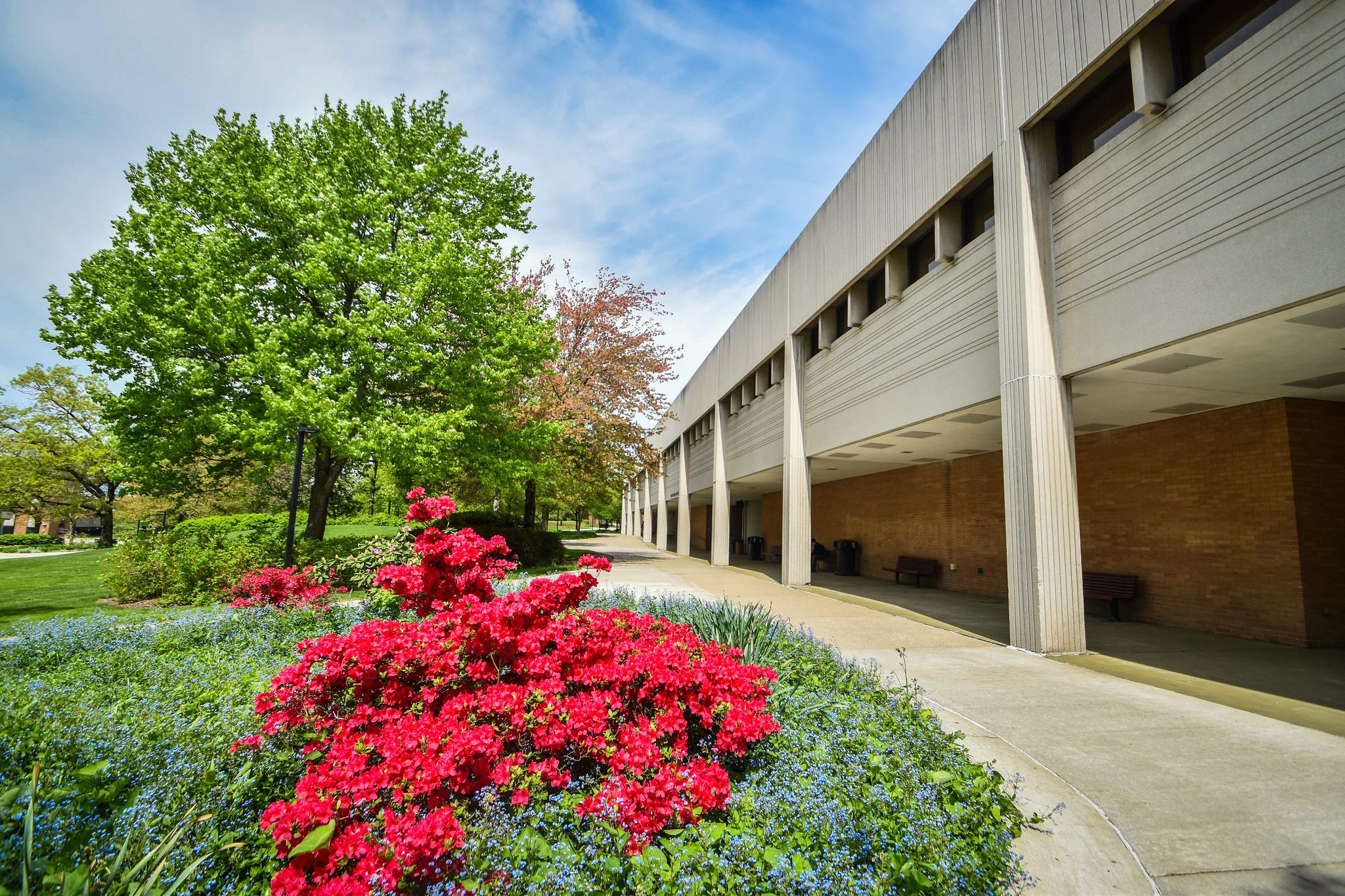
President Tressel asked White and Hyden to update the committee on planning for the future of the university’s student center – Kilcawley Center. White said the university has contracted with WTW to conduct a feasibility study on Kilcawley’s future. White said WTW did a similar study in 2010, but the plan did not go forward due to lack of funding. He said the study will be finished by April 2022. Hyden said a core committee has been formed to oversee the discussion. Polkabla Byers said all campus stakeholders will be involved, especially students.
Hyden also updated the committee on ongoing discussions regarding parking, noting that demolition of the Fifth Avenue parking deck has been under consideration for quite some time. “It’s going to have to come down before long,” he said. The site of the deck, the corner of Fifth and Lincoln avenues, is a possible future site for a new student center, he said. If the deck is removed, the university would help replace the loss of parking spaces by possibly constructing a new two-level parking deck west of Fifth Avenue, possibly behind Taco Bell, Hyden said.
Jim Yukech, associate vice president and chief information officer, updated the committee on the Information Technology Services Strategic Plan – Technological Innovation for Strategic Transformation. He said ITS’ accomplishments over the past five years to shore-up the university’s IT infrastructure are “unbelievable,” noting that 217 multimedia classrooms across campus have been updated, the capacity of the university’s WiFi network has doubled, a laptop refresh schedule has been implemented and a new laptop loaner program are now in place for all students and full-time faculty and staff. Yukech said key challenges remain, including data security, integrity and governance, student success support, IT staffing, data-enabled culture creation, digital integration, data governance, adapting to change. All of those challenges are addressed in the ITS Strategic Plan, he said.
Investment Subcommittee
Actions
- Approved a resolution to Approve Clearstead's Recommendation to Rebalance the Non-Endowment Long-Term Investment Pool. The resolution calls for trimming equities and reallocating to fixed income investments and reallocating proceeds from Diamond Hill to Weatherlow.
Reports
Sarah Parker and John Colla of Clearstead reported that the university’s long term investment pool amounts to $65.2 million, a $10.3 million net investment gain in the past 12 months.
Audit Subcommittee
Reports
Kelli L. Miller, director of Internal Audit, updated the board on several items, including Donor Restricted Fund Audit, Audit Matrix Open Audit Recommendation, FY21 Fourth Quarter Internal Audit Plan, Anonymous Reporting Hotline Stats and Enterprise Risk Management.
Governance Committee
Actions
- Approved a resolution related to Higher Learning Commission Interim Report on Academic Program Enhancement and Effectiveness Initiative (Academic Program Review). The 15-page report is in response to HLC’s request that YSU, as part of its 10-year re-accreditation approval, submit an interim report in September 2021 on the university’s progress in establishing Academic Program Review procedures. The resolution notes that YSU has since launched the Academic Program Enhancement and Effectiveness Initiative that includes an extensive analysis of every academic program on campus and recommendations endorsed by the board’s Academic Excellence and Student Success Committee. “We feel good about the report that we’re submitting,” said Kevin Ball, associate provost. “We welcome any feedback, but we don’t expect any problems.” Provost Smith added, “I’m hoping they’ll be quite impressed with our work.”
Reports
Sherman reported the results of a recent board survey, talked more about the enrollment decrease for this semester, and discussed possible topics for board “advances” (retreats) in October and again in February/March 2022. It was determined the advance in fall semester will focus the board and the university community’s attention on academic vitality for fiscal sustainability and integrity and will likely involve our partners including EAB, Gray Associates and Academic Partnerships. The spring advance will focus on the “collective impact with the region” theme of the Plan for Strategic Actions to Take Charge of Our Future as regional sustainable prosperity is an imperative to be a “comeback” region that attracts business, industry, and new residents served by an educational continuum that serves the region.
The university’s four vice president’s provided examples and highlights on the progress made in their divisions toward fulfilling the university’s strategic plan, Plan for Strategic Actions to Take Charge of Our Future:
- Provost Smith pointed to several successes, including a new degree audit initiative and program review, all underscored by shared governance. “We work best when we work together,” he said.
- Holly Jacobs, general counsel and vice president for Human Resources, said her division, works to support the university in a variety of ways, including removing impediments to hiring and getting better and more diverse candidates for jobs. She noted that HR is also hiring a consultant to review salaries and classifications.
- McNally noted significant progress in Information Technology Services, including improved customer relations, enhanced student admissions and advisement and other IT improvements geared to enhancing student experience and student success.
- Sherman mentioned several initiatives, including a new international enrollment strategy, an enhanced marketing and communications brand strategy, and an approach to curriculum design that effectively and efficiently supports decision making.
Institutional Engagement
Actions
- Approved a resolution to Accept WYSU Memberships - 1,334 memberships totaling $338,771 through the fourth quarter of fiscal year 2021.
- Approved a resolution to Accept Gift of Real Estate. The gift from the YSU Foundation is a small lot on Bryson Street behind the Arms Family Museum.
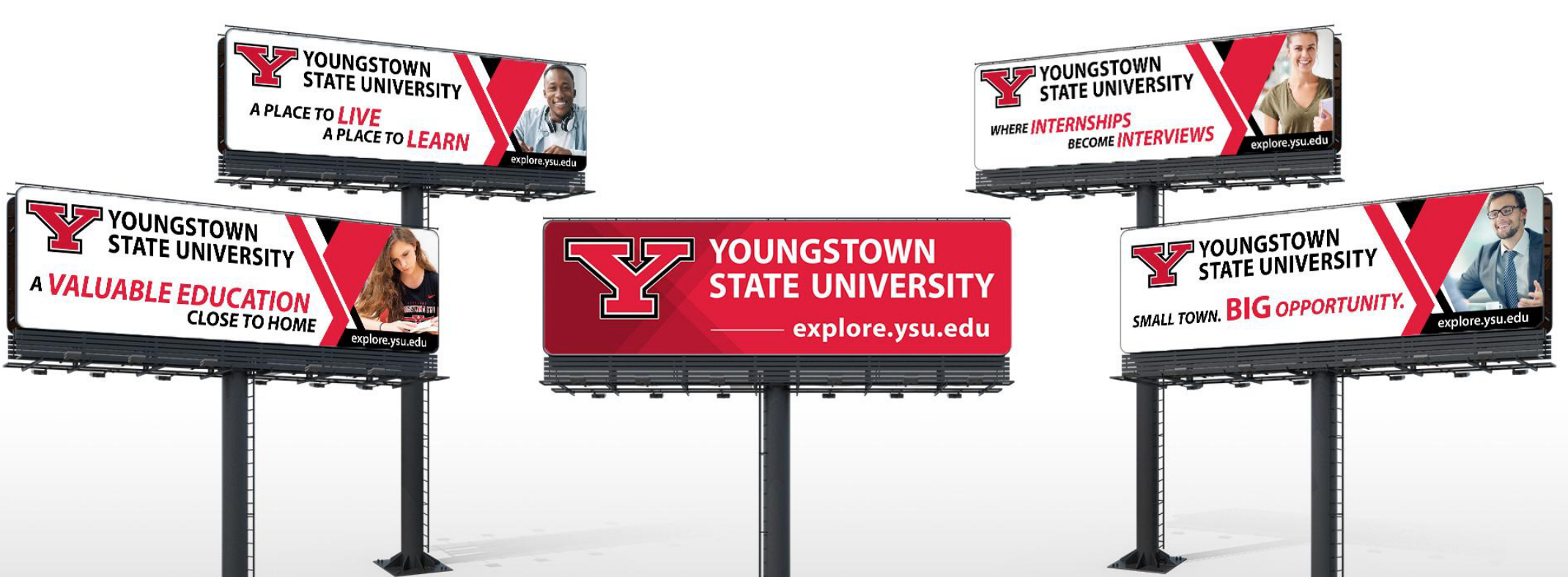
Ross Morrone of the Office of Marketing and Communications presented the university’s integrated marketing and communication strategy. He noted that there are 7.8 million people in a 100-mile radius of Youngstown, 790,000 of which are college eligible. He said the university’s marketing budget was increased to $1.6 million this year. He also noted that the marketing strategy utilizes enrollment data from internal resources, EAB and Gray Associates to make informed decisions on geographic ad placement, program promotion and market opportunities. He indicated a focus will be on the Cleveland-to-Pittsburgh and Erie-to-Canton corridors.
Amy Cossentino, associate provost and dean of the YSU Sokolov Honors College, reported on the university’s continued review and assessment of YSU’s “Centers” and “Institutes,” including impact on the community. She indicated the university's policy on centers, institutes and partnerships will be reviewed and an annual update implemented.
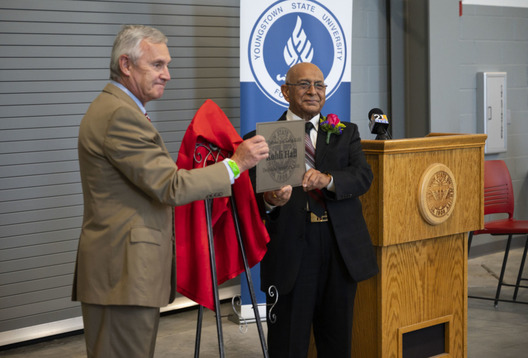
David Sipusic, executive director of the YSU Excellence Training Center and associate general counsel for Research, reported on the ribbon-cutting of the ETC and the recent announcement of a $5 million gift from Dr. Chander and Karen Kohli to name the building Kohli Hall. Jennifer Oddo, executive director of Strategic Workforce Education and Innovation, reported on several initiatives, including the Energy Storage Training and Innovation Center, the YSU Skills Accelerator and the IBM IT Workforce Accelerator. Oddo also reported that she and President Tressel met with General Motors CEO Mary Barra in August at Ultium Cells in Lordstown. Tressel said Barra requested that YSU be invited to the meeting, and he noted that eight of the 10 engineers who spoke at the event were graduates of YSU.
Paul McFadden, president of the YSU Foundation, reported that the Foundation received 801 outright gifts and 14 pledges totaling $2.166 million, pledge payments totaling $1.045 million and three new planned gift commitments totaling $130,000 for the fourth quarter of Fiscal Year 2021.
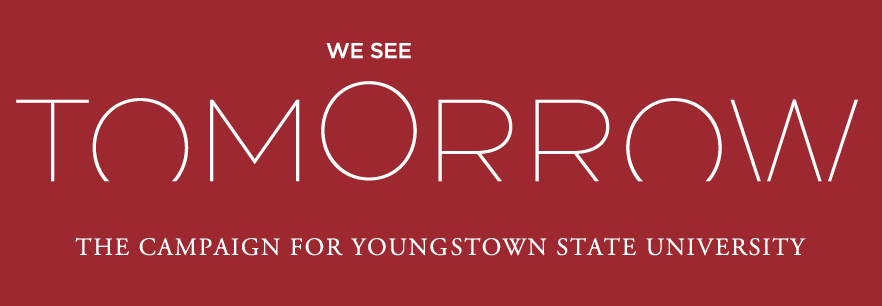
University Affairs
Actions
- Approved a resolution to Ratify Personnel Actions in Intercollegiate Athletics, including four appointments, six separations, 16 salary adjustments and six reinstatements.
- Approved a resolution to Modify Equal Opportunity and Affirmative Action Recruitment and Employment Policy. The modifications are the result of ongoing review and updating of university policies.
- Approved a resolution to Modify Courtesy Vehicle Program Policy. The modifications are the result of ongoing review and updating of university policies.
- Approved a resolution to Modify Licensing of University Names and Marks Policy. The modifications are the result of ongoing review and updating of university policies.
- Approved a resolution to Modify Nepotism and Potential Conflicts in Employment Situations Policy. The modifications are the result of ongoing review and updating of university policies.
- Approved a resolution to Rescind Development and Authorization of Institutional Procedures Policy. The policy will be replaced with updated policy Divisional administrative procedures.
- Approved a resolution to Modify and Retitle Divisional Administrative Procedures Policy. The policy is being modified to provide university-wide guidance for the development of administrative procedures necessary to implement the policies of the Board of Trustees and to administer the university. The policy is renamed Development and Authorization of Administrative Procedures.
- Approved a resolution to Ratify Personnel Actions from April 16 through July 15, 2021, including 21 appointments (seven new and 14 replacement), 25 separations, eight reclassifications/position adjustments, 10 promotions, 18 salary adjustments and two transfers.
Reports
Ron Strollo, executive director of Athletics, reported on organizational changes made in an effort to increase the Athletics department’s effectiveness. He said the changes were prompted in part due to the recent departure of three trainers, as well as the division’s compliance director and chief fundraiser. The reorganization includes two new positions - associate general counsel for Athletics and deputy athletics director for Performance Excellence. The latter position has been filled by Tory Lindley, former president of the National Athletic Trainers Association.
Strollo presented the annual financial analysis of YSU Intercollegiate Athletics for 2019-20. Among the report’s highlights: YSU’s expenditures for football and men’s and women’s basketball are lower than the average for counterparts in the Missouri Valley Conference, Mid-American Conference and Horizon League; YSU football and men’s basketball generate revenue higher than MVFC and Horizon League competitors; YSU spends $11,139 less per student athlete compared to other MVFC schools; across all seven men’s sports, YSU’s annual expenditures are $4.1 million less than peer institutions in the MVFC, MAC and Horizon leagues, and $1.2 million less for the nine women’s sports. “It’s really quite amazing how inexpensive we have been able to stay,” Tressel said.
Memorials
President Tressel recognized the following passings:
- C. Wade Raridon, 40-year faculty member, founding director of the Dana Madrigal Singer and the Dana Chorale, initiated “Carols and Cocoa” holiday concert.
- Jean T. Hassell, 32-year faculty member, Department of Human Ecology.
- Steven T. Shelton, YSU alum, spouse of Christine Shelton, coordinator of External Relations, Williamson College of Business Administration.
- Loretta M. Liptak, 31-year faculty member, Department of Health Sciences.
- Michael Jerryson, eight-year faculty member, Religious Studies.
- Faramarz D. Mossayebi, 20-year faculty member, Electrical and Computer Engineering.
- Joe Cassese, owner of MVR (Mahoning Valley Restaurant)
- Phillip Chuey, CPA, lawyer and retired assistant professor of Accounting and Finance.
Board Chair’s Remarks
Board Chair John Jakubek made the following remarks:
We are making great progress implementing our Plan for Strategic Actions to Take Charge of Our Future.
The Academic Program Enhancement and Effectiveness Initiative, with interactions of faculty and academic leadership, resulted in the first-ever review of our academic programs, including recommendations accepted today by the board. This is a requirement of our reaccreditation through 2027 and the board endorsed a resolution, a comprehensive report on the process and outcomes, and letter of transmittal to the Higher Learning Commission. The Academic Program Enhancement and Effectiveness Initiative is also spelled out in our strategic plan that calls for a continuous process of improvement of our academic programs and to determine the academic portfolio meeting the educational needs of the region and beyond and within the resource capacity of this institution
We have observed consistent declines in enrollment over the previous few years including this year and anticipate the following:
- An integrated marketing and communication strategy be implemented to extend the brand beyond our local region...particularly focusing on campus-based undergraduate programs. We have a great campus environment, and outstanding opportunities for living to learn and learning to live.
- A continued focus on offering strategically selected graduate programs online that will continue to build enrollment at the graduate level.
- A 14-day enrollment report that considers an academic portfolio aligned with a sustainable future
- Significant improvement in the areas of curricular efficiency as outlined yesterday in our academic excellence and student success committee meeting
As it relates to the health and safety of our campus and community, the board supports strongly encouraging vaccinations and the current mask mandate. It is also prudent for the administration to continue to collect additional information and to assess the institutional capacity and capabilities to assess vaccination status if and when appropriate. This is a very fluid pandemic. We will keep our fingers on the pulse and adjust accordingly.
Upcoming Regular Meetings of the Board
The board set the following dates and times for the next regular meetings of the trustees, with committee meetings scheduled the preceding day:
- 10 a.m., Thursday, December 2, 2021
- 10 a.m., Thursday, March 3, 2022
- 10 a.m., Thursday, June 23, 2022
